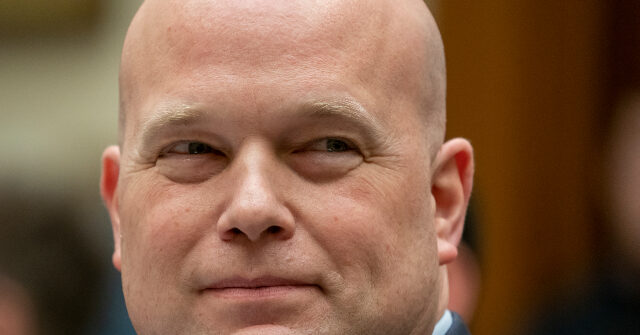President-elect Donald Trump announced his appointment of Matthew G. Whitaker, the former Acting Attorney General, as the next United States Ambassador to the North Atlantic Treaty Organization (NATO). In a statement, Trump emphasized Whitaker’s strong commitment to American interests, labeling him a “warrior” and “loyal Patriot” who would enhance relationships with NATO allies while confronting threats to peace and stability. Trump underscored his confidence in Whitaker’s ability to represent the United States with strength and integrity, which aligns with his administration’s motto of “PEACE THROUGH STRENGTH.”
Whitaker’s background includes serving as the U.S. Attorney for the Southern District of Iowa and earning multiple degrees—including a Bachelor of Arts, an MBA, and a Juris Doctor—from the University of Iowa, where he was also an athlete and recipient of the Big Ten Medal of Honor. His appointment as NATO ambassador is expected to be crucial for the implementation of Trump’s foreign policy objectives. Among these goals is the push for greater financial contribution from NATO allies, particularly those that fail to meet the obligation of spending at least 2% of their Gross Domestic Product (GDP) on defense.
During his first term, Trump successfully advocated for increased defense spending among NATO nations, and it is anticipated that he will pursue similar efforts during his second term. The role of the NATO ambassador is thus integral not just for diplomatic relations but also for addressing the financial and operational dynamics of the alliance. This is particularly relevant as the backdrop of NATO’s existence has been challenged by global security threats, demonstrating the need for a unified defense strategy.
Another pressing issue for Whitaker in his new role will be addressing the ongoing conflict in Ukraine, which has not only strained international relations but also imposed significant financial burdens on the United States. The war in Ukraine poses complex challenges to NATO allies and has influenced strategic decision-making within the organization. The ambassador’s responsibilities will likely involve efforts to foster solidarity among NATO countries while navigating the intricacies of international military support and resources in response to the conflict.
In light of these challenges, the Trump administration’s approach will likely remain focused on a transactional view of alliances, demanding accountability from partner nations in terms of financial commitments and military readiness. Whitaker’s capability to uphold these expectations will play a critical role in shaping NATO’s future direction and effectiveness in unified defense strategies. His experience in law and governance, combined with Trump’s assertive stance on foreign policy, positions him as a pivotal figure during a transformative period for NATO.
Ultimately, Trump’s selection of Whitaker as U.S. Ambassador to NATO reflects a broader strategy aimed at reinforcing American leadership on the global stage while advocating for a more equitable distribution of defense spending among member states. The appointment signals a continuation of the administration’s emphasis on “America First” policies, focusing on national interests and advocating for a strengthened stance in international relations. As the geopolitical landscape continues to evolve, Whitaker’s role will be instrumental in navigating both the challenges and opportunities that lie ahead for NATO and its member nations.

